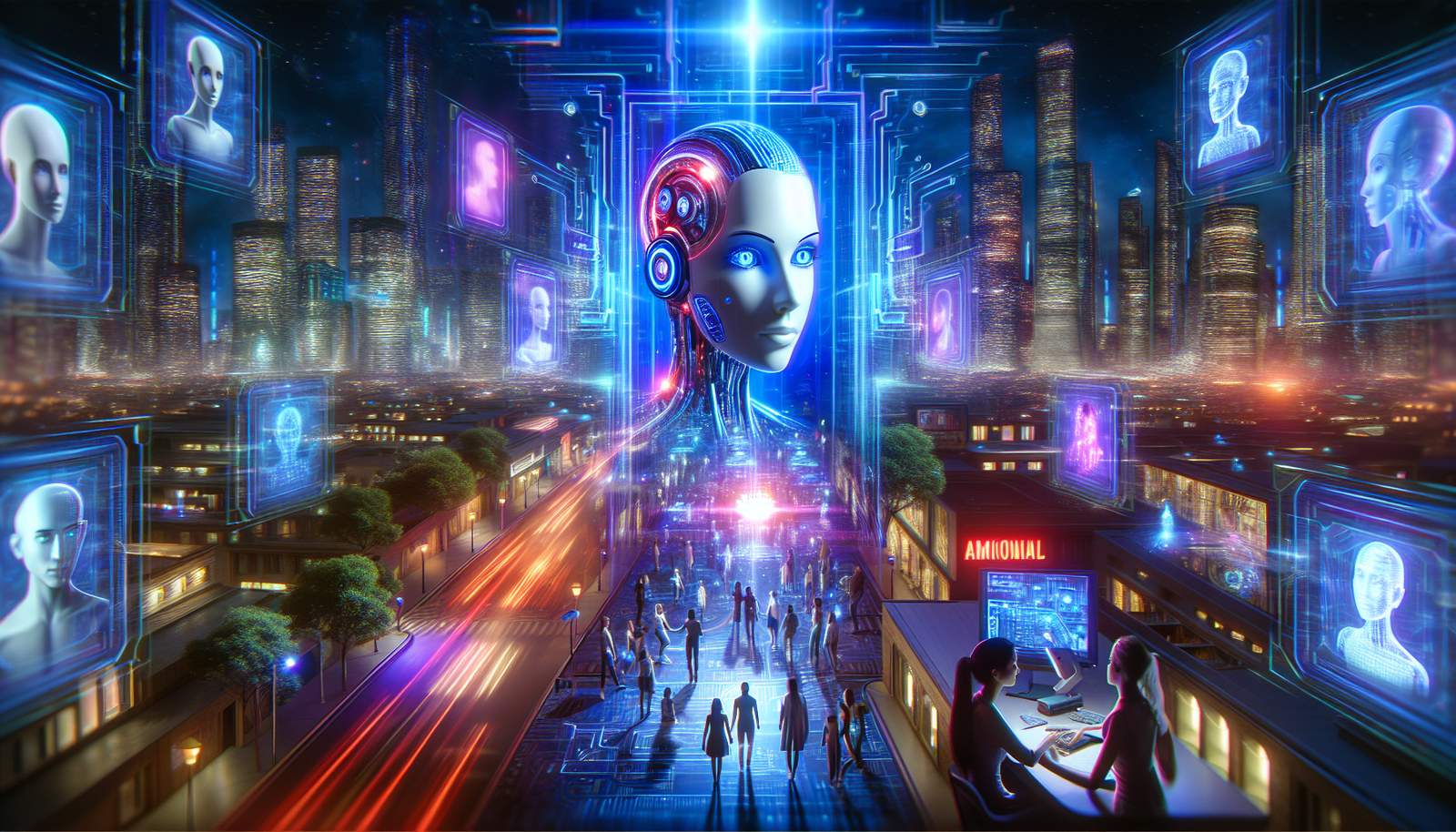The emergence of emotional AI goes beyond the simple realm of science fiction. This innovative technology allows systems to analyze and simulate human emotions. *The convergence between emotion and artificial intelligence* is transforming social and business dynamics.
Emotion detection is now integrated into various applications, enriching our interaction with machines. *The ethical stakes surrounding this evolution* deserve particular attention. Emotional AI not only enriches our technological tools but also redefines our relationship with machines and our social environment. The perspectives offered by this booming sector seem endless.
The emergence of emotional AI
The field of emotional artificial intelligence is gradually implanting itself into our modern technological reality. Once confined to the universe of science fiction, these systems now align with practical and commercial applications. Companies are interested in these tools capable of understanding, interpreting, and simulating human emotions, thus opening new perspectives.
From theory to practice
The concept of linking artificial intelligence with understanding emotions began to take shape in the 1990s. Rosalind Picard, an expert at MIT Media Lab, formalized this field in her pioneering work titled Affective Computing. She emphasized the need to equip machines with the ability to recognize and express emotions to facilitate human-machine interaction.
Revolutionary technologies
Advanced generative AI technologies are being implemented to analyze various emotional indicators. Facial recognition, vocal tone analysis, and written exchange evaluation allow for effectively deducing states of mind. Neural networks are now capable of identifying micro-expressions that reveal feelings such as sadness or joy, marking a decisive turning point in the use of artificial intelligence.
The hyperscalers are committing
Large technology companies, or hyperscalers, are integrating these technologies within their services via APIs. Microsoft, for instance, has developed the Emotion API in its Azure cloud, while Amazon Web Services offers Rekognition. These solutions shape user interactions, aiming to enhance the customer experience through a contextual understanding of emotions.
The role of startups
New startups, like Uniphore, are emerging with innovative solutions and have attracted significant investments. The latter has raised over 610 million dollars to develop an AI co-pilot that possesses emotional depth. Their goal is to establish a trust-based link through various business functions, ranging from customer service to human resources.
Market perspectives
The field of emotional AI looks promising. According to Mordor Intelligence, the market for emotion detection and recognition could soar to 139.44 billion dollars by 2029. This phenomenon is accompanied by a growing need for advanced marketing tools, thus stimulating adoption of these technologies by companies.
Applications across various sectors
Many sectors, including healthcare and services, show interest in applications of emotional AI. In the medical field, tools are being developed to facilitate patient care, helping them express emotions that are often difficult to verbalize. In the services sector, personalizing interactions can create more empathetic and relevant user experiences.
Smart assistants: a promising future
Smart assistants represent one of the most concrete applications of this technology. They can adjust their responses based on the perceived mood of the user. This level of personalization envisions more tailored support, such as suggesting calming music in times of stress.
Studies show that some companies are already using emotional AI to assess employee well-being. By analyzing facial expressions or vocal intonations, they aim to improve the work environment and ensure the well-being of their teams.
Ethical and societal challenges
The emergence of emotional AI raises reflections on the ethical implications of this technology. How it might influence human relationships raises delicate questions. The risk of generating emotional dependencies on machines is concerning. Therefore, technologists, legislators, and psychologists must ensure that emotional AI genuinely enhances the human experience without compromising individual rights.
Worrying cases have been reported, such as emotional distress caused by interactions with chatbots. Investigations reveal that some of these technologies could exacerbate psychological issues, leading to digital despair for some users. These concerns highlight the ethical foundation necessary at the forefront of these innovations.
Frequently asked questions about the emergence of emotional AI
What is emotional AI?
Emotional AI refers to a branch of artificial intelligence that aims to analyze, recognize, and even simulate human emotions to improve interactions between machines and users.
How is emotional AI used today?
Current applications of emotional AI include analyzing facial expressions, voice tone, and language processing to offer more personalized and empathetic robotic services, particularly in customer service and healthcare.
Who pioneered the development of emotional AI?
Rosalind Picard, a professor at MIT Media Lab, played a crucial role in formalizing emotional AI with her book “Affective Computing” published in the 1990s.
What technologies underlie emotional AI?
Technologies such as facial recognition, natural language processing (NLP), and neural networks are used to interpret and simulate human emotions.
What are the ethical challenges associated with emotional AI?
Ethical challenges include privacy protection, manipulation of human emotions, and the need to regulate the use of technologies to avoid any form of discrimination or bias.
What is the impact of emotional AI on the job market?
Emotional AI could transform certain jobs by automating tasks such as customer service while requiring new skills related to managing emotions in a professional context.
What is the growth potential of emotional AI in the market?
According to recent studies, the market for emotion detection and recognition could grow from 57.25 billion dollars in 2024 to 139.44 billion dollars in 2029, reflecting a heightened interest in this technology.
How can emotional AI improve mental health?
It can enable better analysis of patients’ emotions, thereby facilitating psychological care by providing more accurate assessment tools for healthcare professionals.
Which leading companies are developing emotional AI solutions?
Companies like Microsoft, Google, and Amazon are at the forefront of developing emotion analysis APIs while supporting an ecosystem of startups innovating in this field.
How do advancements in emotional AI affect our relationship with machines?
These advancements lead to an evolution towards more aesthetic and human-like interactions, allowing machines to be perceived not just as tools but also as emotional partners.






